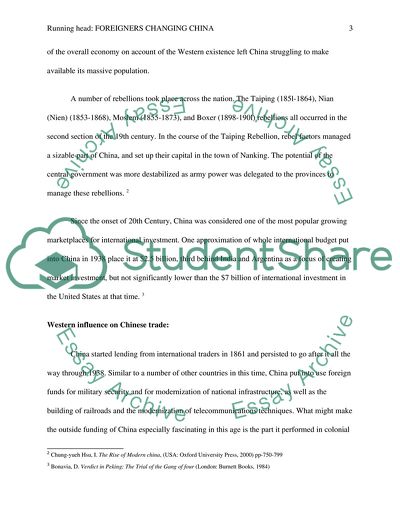Cite this document
(“Foreigners Changing China, 1850-1980 Essay Example | Topics and Well Written Essays - 1750 words - 2”, n.d.)
Foreigners Changing China, 1850-1980 Essay Example | Topics and Well Written Essays - 1750 words - 2. Retrieved from https://studentshare.org/history/1638869-foreigners-changing-china-1850-1980
Foreigners Changing China, 1850-1980 Essay Example | Topics and Well Written Essays - 1750 words - 2. Retrieved from https://studentshare.org/history/1638869-foreigners-changing-china-1850-1980
(Foreigners Changing China, 1850-1980 Essay Example | Topics and Well Written Essays - 1750 Words - 2)
Foreigners Changing China, 1850-1980 Essay Example | Topics and Well Written Essays - 1750 Words - 2. https://studentshare.org/history/1638869-foreigners-changing-china-1850-1980.
Foreigners Changing China, 1850-1980 Essay Example | Topics and Well Written Essays - 1750 Words - 2. https://studentshare.org/history/1638869-foreigners-changing-china-1850-1980.
“Foreigners Changing China, 1850-1980 Essay Example | Topics and Well Written Essays - 1750 Words - 2”, n.d. https://studentshare.org/history/1638869-foreigners-changing-china-1850-1980.


